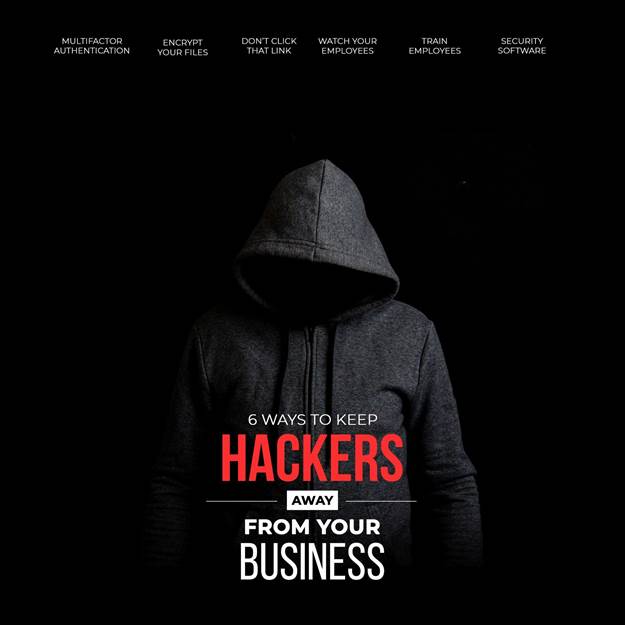Introduction
In the age of digital interconnectedness, where the virtual realm seamlessly intertwines with the tangible world, one unsettling fact is undeniable: the spectre of cyber threats looms ever-present, waiting for an opportune moment to strike.
It is a world characterised by complexity and perpetual evolution, where malevolent actors, veiled in anonymity, actively seek to undermine the strongholds of data security we have so diligently erected.
The domain of cyber threats is not for the faint-hearted. It bears a resemblance to a dense, treacherous forest teeming with snares and pitfalls, its adversarial denizens multiplying akin to rabbits in the vernal season. Anonymity shrouds perpetrators, and data breaches serve as the insidious currency of this digital underworld.
However, amid this dynamic and relentless landscape, a sentinel has emerged, one bearing the moniker of Artificial Intelligence (AI). AI, the vigilant guardian of the digital realm, has assumed the mantle of protecting our virtual territories against insidious infiltrators. This article embarks on an exploration of the transformative role of AI in the arena of cybersecurity, akin to a stalwart steed galloping to the rescue.
This narrative takes us through the uncharted territories of AI within cyber defence, elucidating its manifold advantages, imperfections, and the ethical intricacies it confronts. With a contemplative and analytical approach, we delve into AI’s pivotal role in fortifying our digital bulwarks, where its influence is as profound as a newly appointed Inspector General of Police outlawing certain activities. Thus, let us embark on this journey with the precision and gravitas this subject demands.
I. The Evolving Cyber Threat Landscape
Within this complex digital ecosystem, we confront a rapidly evolving cyber threat landscape. It is a space where threats encompass a diverse spectrum, from sophisticated state-sponsored espionage to the proliferation of financially motivated cybercrime. As our reliance on technology deepens, the potential vulnerabilities multiply, and adversaries continue to adapt to exploit them.
Consider, for instance, the alarming rise of ransomware attacks, where cybercriminals encrypt vital data and demand ransoms for its release. These attacks are characterised by their audacity and often result in significant financial losses and reputational damage for targeted organisations. In response, the need for effective and efficient cyber defences has never been more urgent.
II. The Role of AI in Cybersecurity
In this turbulent landscape, the emergence of Artificial Intelligence is a beacon of hope. AI, a technology synonymous with machine learning, predictive analytics, and automated decision-making, holds the potential to revolutionise cybersecurity. By harnessing the capabilities of AI, organisations can attain a new level of proactive defence, shielding themselves against the ceaseless barrage of threats.
AI brings to the fore the power of predictive analysis. With the ability to process colossal datasets, it can identify patterns, anomalies, and potential vulnerabilities faster and more accurately than human analysts. AI-enhanced threat detection systems serve as ever-watchful sentinels capable of discerning the slightest hint of suspicious activity amidst digital noise.
III. Benefits of AI in Cyber Defense
The advantages of incorporating AI into cybersecurity are manifold. Foremost among them is real-time threat analysis. AI-driven systems can instantly identify deviations from established baselines, raising red flags before threats can fully manifest. Moreover, AI excels in automation, streamlining routine tasks such as patch management and security updates.
Consider, for instance, an organisation’s ability to preemptively detect a zero-day exploit—previously unknown vulnerabilities—before they are weaponised. AI-equipped defences can respond nimbly and effectively, mitigating potential damage before it unfolds.
IV. AI-Powered Threat Detection
One of AI’s most prominent roles in cybersecurity is threat detection. It operates as a digital bloodhound, sniffing out nefarious activity with unerring precision. AI can analyse network traffic in real time, swiftly identifying unusual behaviours that might elude human scrutiny. This swiftness is crucial when it comes to averting potentially devastating breaches.
As an example, consider the ability of AI to detect subtle signs of an advanced persistent threat (APT) within an organisation’s network. These long-term, stealthy infiltrations, often orchestrated by nation-state actors, require vigilance that only AI can maintain consistently.
V. AI in Incident Response
Beyond detection, AI also plays a pivotal role in incident response. When a cyberattack breaches the digital ramparts, time becomes a critical factor in minimising damage. AI-driven systems excel in quickly analysing security incidents determining their severity, scope, and impact.
Imagine an organisation facing a data breach. AI can rapidly ascertain the breach’s scale, pinpointing affected systems and identifying the compromised data. This expedites containment and recovery efforts, ultimately reducing the harm inflicted.
VI. Challenges and Limitations of AI in Cybersecurity
However, the employment of AI in cybersecurity has its challenges. False positives, where benign activities are incorrectly flagged as threats, pose a persistent concern. Ongoing human oversight and validation remains paramount to avoid erroneous actions that may disrupt legitimate operations.
Additionally, the ethical implications of AI in cybersecurity merit consideration. The potential for bias within AI models and collecting sensitive data for threat analysis necessitates a vigilant commitment to responsible and transparent AI practices.
VII. Ethical and Privacy Concerns
As the deployment of AI in cybersecurity proliferates, we must navigate the ethical labyrinth it entails. Gathering and analysing data necessary for AI’s efficacy often intersects with privacy concerns. Striking a balance between data security and individual privacy is a delicate tightrope organisations must tread.
It is essential to ponder the implications of relying on AI for threat analysis, especially when it involves personal or sensitive data. How do we ensure the ethical use of AI, safeguarding the privacy and rights of individuals while simultaneously protecting against cyber threats?
VIII. Implementing AI in Cybersecurity:
For organisations, integrating AI into their cybersecurity strategy is a strategic imperative. Implementing AI-powered defences should be holistic, encompassing not only detection and response but also vulnerability assessment, threat intelligence, and secure software development practices.
A strategic plan for AI adoption must include selecting the right technology, training personnel, and continually adapting to the evolving threat landscape. Collaboration between AI systems and human experts is the linchpin to effective cybersecurity.
IX. Case Studies
To elucidate the tangible impact of AI in cybersecurity, consider the case of a multinational financial institution. By deploying AI-driven systems, this organisation achieved remarkable gains in threat detection and response. Incidents that once took hours to identify are now resolved in minutes, minimising financial losses and safeguarding its reputation.
Another noteworthy example is a government agency tasked with protecting critical infrastructure. Through the judicious use of AI, it has successfully thwarted numerous cyberattacks, including those orchestrated by well-funded state actors. This case underscores the potential of AI to defend against even the most formidable adversaries.
Conclusion
In this era of relentless cyber threats, the emergence of AI as a go-to defender stands as a testament to the transformative power of technology. It is a digital sentinel, tirelessly vigilant in its mission to safeguard the virtual landscapes we inhabit.
The benefits of AI in cybersecurity are evident, from real-time threat analysis to expedited incident response. However, we must navigate the challenges, ethical dilemmas, and privacy concerns accompanying this technological advance.
As we conclude this exploration, it is evident that AI has emerged as a formidable ally in the ongoing battle for digital security. But, like any innovation, its effectiveness is maximised when combined with the wisdom, discernment, and ethical stewardship of human defenders. The marriage of AI and human expertise is the modern frontier of cybersecurity, a dynamic equilibrium poised to redefine the landscape of digital defence.




